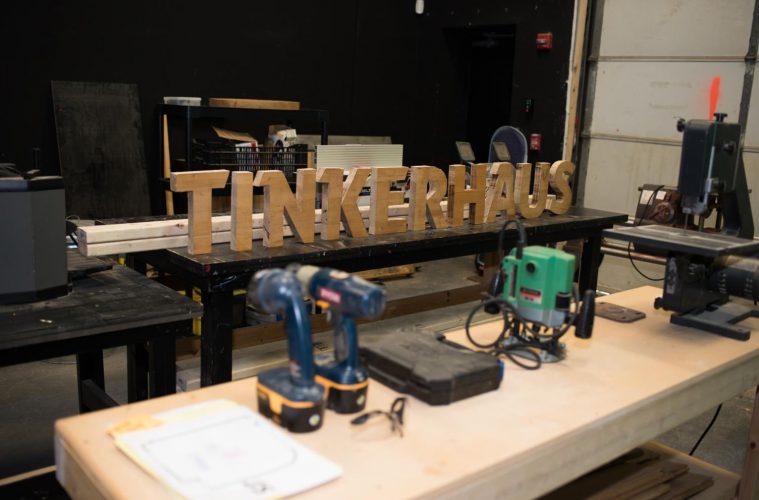Mary McDonald enjoys woodworking. She also plays tennis. So she can sometimes be an unusual sight lined up with the contractors at the big box stores, picking up supplies in her tennis whites—and that’s just fine with her. In fact, she hopes more people add woodworking to their list of hobbies, and she has removed a significant barrier to that by opening Tinkerhaus, a new maker space in Newburyport.
Stocked with every cool power tool one could dream of, along with sewing machines and a 3-D printer, the new space offers plenty of inspiration for creating. “I believe it’s important for people to channel their creativity into productive areas, whether that is for enjoyment or employment,” says McDonald.
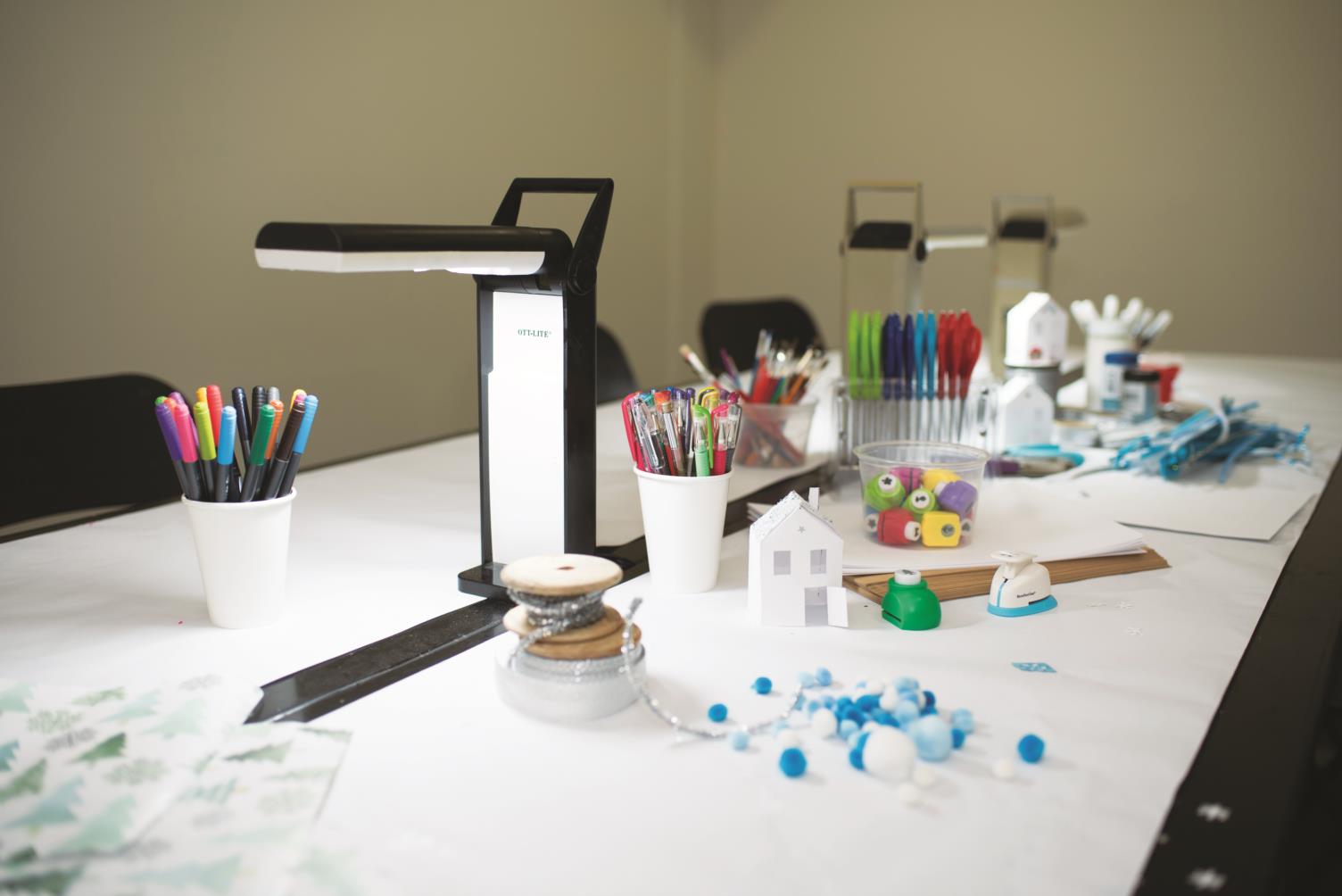
Maker spaces—shared workshop environments where people can access a variety of tools, classes, space, and expertise to create things—are popping up around the country. Driven by a thirst to make something with their hands, as well as the popular DIY mindset and the growing gig economy, people are turning to these gathering spots for fun and profit.
McDonald, who spent more than a decade as director of education and community engagement for the Wenham Museum prior to opening Tinkerhaus, has been watching the maker space trend with growing excitement for several years now, touring the country and visiting conferences before pulling the trigger on launching the nonprofit organization. Since then, the outpouring of support has been terrific.
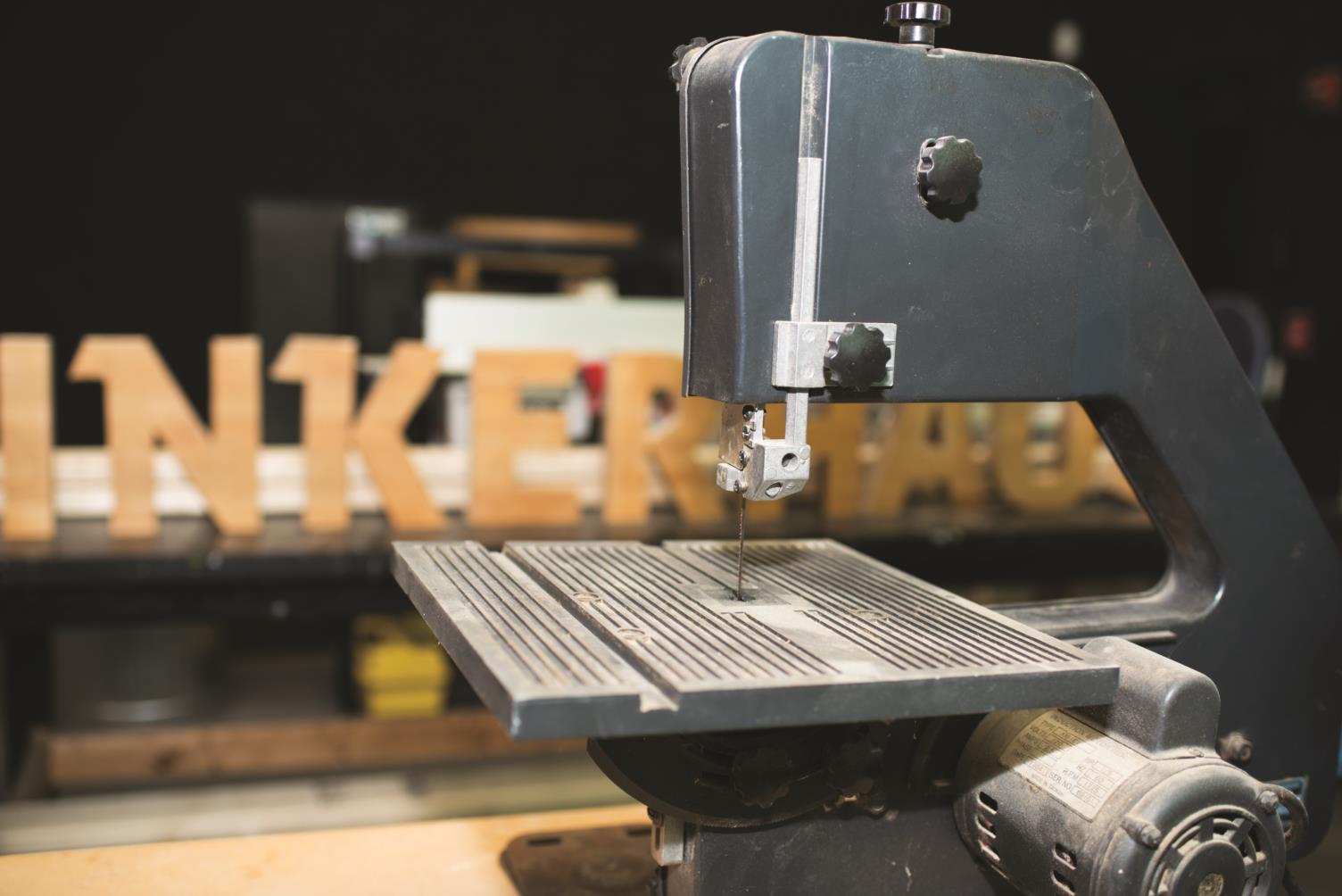
“People in the community have offered surprising things, like my accountant donated his time,” says McDonald, who grew up in Newburyport. “People have also been donating tools and teaching me how to use them.”
She hopes that’s just the start, though. “People who can use and maintain tools will be vital [to the Tinkerhaus community],” she says, “people who are able to instruct—not just teach classes, but to train and test, to make sure that everyone who uses the tools knows what they are doing.”
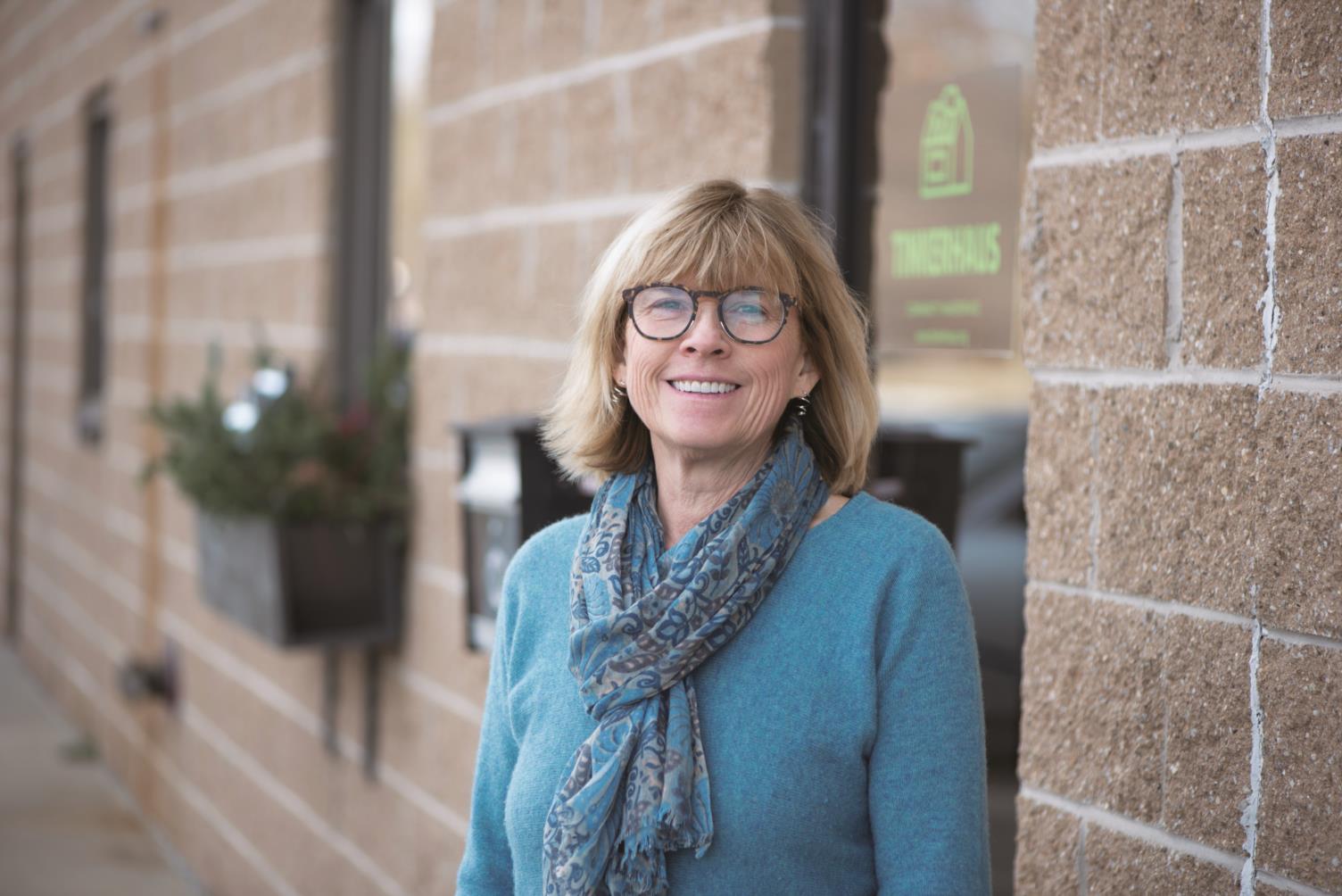
Currently, Tinkerhaus offers spaces for instructors to rent, as well as memberships that allow people to come in and use the tools and resources available, which include everything from a 3-D printer to a band saw. Memberships range from an all-access $89 per month, which enables people to use the space whenever it is open, to levels for hobbyists and students. The woodworking shop provides sanders, a drill press, table saws, and planers, among other items, while the sewing space will be outfitted with regular machines as well as a “walking foot” machine, which can be used on leather and other heavy-duty fabrics—especially attractive to motorcycle buffs and “cosplay” enthusiasts. Cosplay is the popular hobby of dressing up as a favorite character from a video game, TV show, or other entertainment, often to visit conventions like Comic-Con. The design studio will also be outfitted with CAD capabilities.
One early adopter of the space is Donna Ellison, an artist who has been teaching decoupage—gluing paper cutouts to a variety of surfaces—as well as other arts for nearly a decade. Being able to move her classes, where students create one-of-a-kind works of art on anything from lamps to glass trays, from her home to a studio space has brought inspiration—and a wealth of other benefits, from access to a color laser printer to a coffee station. “When you’re around creative people, it inspires you,” Ellison says. “It’s going to be a hub of creativity, which I think is wonderful.”
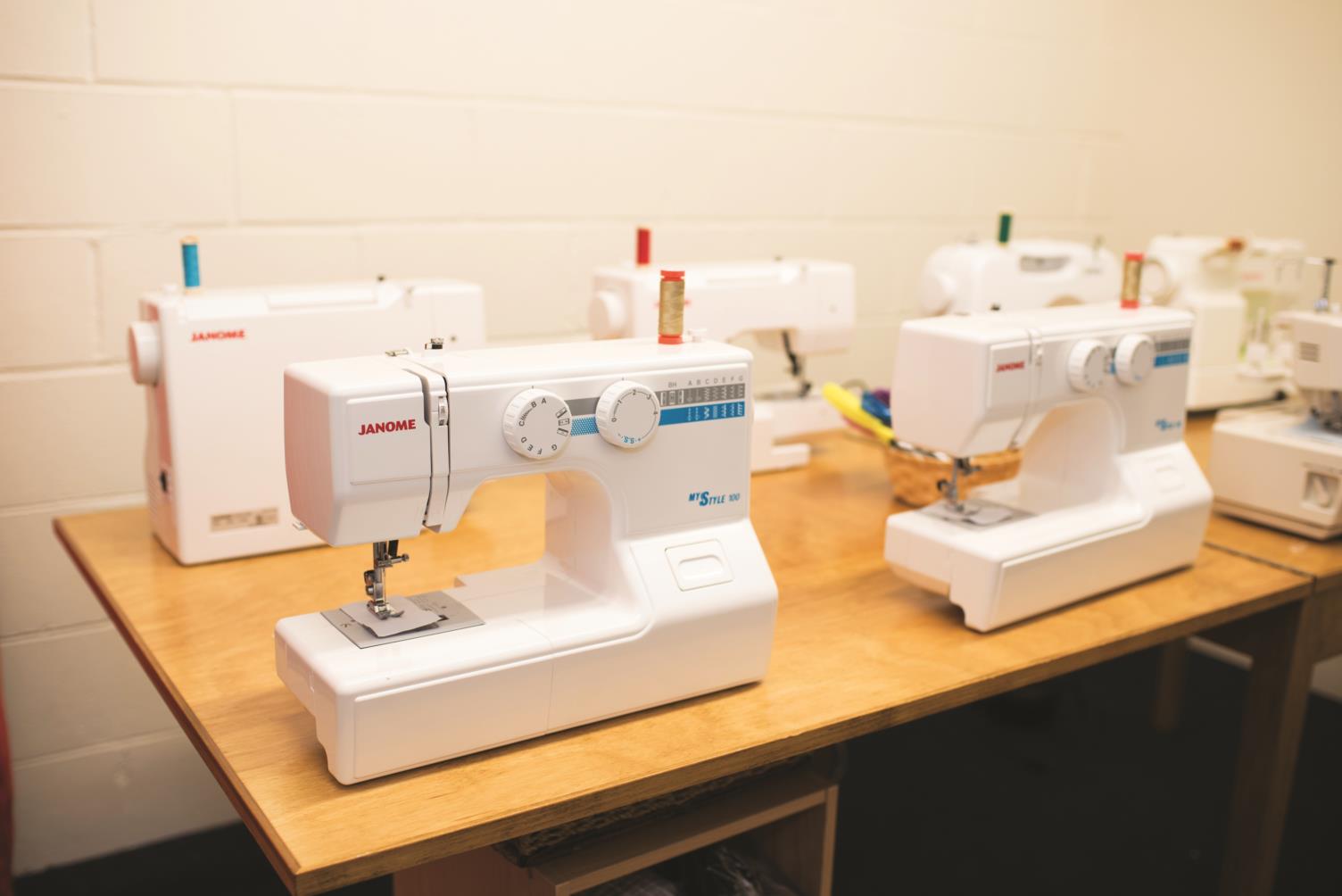
Ellison says her students, and she herself, find the act of creating with your hands to be almost therapeutic. “It’s very calming,” she says. “It causes you to slow down; you can’t think about anything else while you are going through the design process.”
While retirees and 20-something gig workers have embraced the space, McDonald also wants to also attract kids. With woodshop and home economics disappearing from the education landscape, finding a place to put down the screen and create is getting harder. “I’ve seen a lot of kids through the years who would have benefited from hands-on learning,” McDonald says, noting that Tinkerhaus offers a discounted student rate for after-school access.
In many ways, the Newburyport maker space is a return to the city’s roots, McDonald says. “I feel like we should be able to create things in Newburyport. People who live here have always made things,” she says. “We made ships and shoes, and now we can make the future.”

